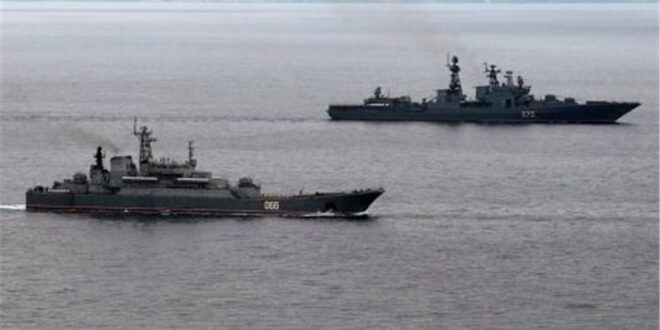In 2019, I warned: “The Russian Federation is pursuing an active and wide-ranging strategy to reassert and strengthen its dominant position in the greater Black Sea region, which the Kremlin believes is critical for the restoration of Russia’s great power status. Consolidation of the Russian position in this region will establish and enhance the military, political, and economic foundations of Russia’s position as a great power.” The resumption of direct Russian military action against Ukraine in 2022 has made clear the strategic importance of the Black Sea—and highlighted the need for a more coherent, cohesive Euro-Atlantic approach to the area.
Despite a number of setbacks in its military operations against Ukraine, Russia still retains a number of “home field” advantages in the Black Sea region. Both the North Atlantic Treaty Organization (NATO) and the European Union are also Black Sea littoral actors (Bulgaria and Romania are members of both organizations, and Turkey is one of the major players in NATO), yet Turkey—and to a lesser extent Bulgaria—have always sought to balance their alliance obligations with keeping ties with Moscow. The United States, therefore, must develop a strategy that recognizes that Ankara, in particular, has eschewed serving as the West’s proxy in the Black Sea in favor of independently assessing where and when cooperation with Russia, rather than confrontation, serves Turkish interests. NATO as a whole—and the United States in particular—cannot expect to “delegate” to Ankara the task of carrying out a Western strategy for the greater Black Sea region.
The process of economic decoupling between Russia and Central Europe—most notably symbolized by the disabling of the Nord Stream pipelines—has raised the importance to Russia of the Black Sea as one of Moscow’s key geo-economic corridors to world markets. Whether it is the Turkish Stream and Blue Stream pipelines sending Russian gas to Turkish hubs, or oil tankers and wheat carriers connecting to and through Turkey, Russia needs an accessible Black Sea. At the same time, as part of its economic warfare against Ukraine, the Russians have attempted to deny access to Ukraine—either by direct seizure of its Black Sea ports or by creating conditions that make accessing the Ukrainian coastline dangerous for merchant vessels.
Keeping Ukraine as a Black Sea actor—and strengthening the maritime and geo-economic capacities both of NATO members like Bulgaria and Romania, as well as other states in the area embarked on closer ties with the Euro-Atlantic world, such as Moldova and Georgia—are all critical components of competing with Russia’s “southern strategy.” Yet any strategy moving forward must take into account resource constraints—the Black Sea region is never going to become a primary focus of US attention—and the risks of direct confrontation with Russia—which also explains a more cautionary approach taken by some of the other littoral states of the region. Finally, expecting that the Montreaux Convention will continue to govern the entry of US military vessels into the Black Sea, the United States cannot pin its efforts on expectations that these treaty stipulations will change.
First, the United States and other NATO partners have to assist the NATO Black Sea states to be able to project maritime power from the land—to create and maintain robust anti-area/access-denial bubbles that cover their sea coasts and shipping lanes. Despite the confidence that Ukraine, with Western military aid, might regain control over the Crimean peninsula, any US approach must be grounded in the assessment that Moscow will be able to retain Crimea and continue to use it as the forward base for Russian power projection in the Black Sea. Therefore, allied states need to have the ability to blunt Crimean-based assets from threatening their own shorelines and exclusive maritime zones.
Second, taking a page from Eric Schmidt’s comments at the 2022 Atlantic Future Forum, and based on recommendations provided by Harlan Ullman to a Naval War College workshop, NATO allies—and partner countries—need to have access to a steady supply, not of “exquisite and expensive” systems that might be governed by the Montreaux Convention and would be pulled away at the first sign of trouble in other theaters, but durable, attritable, uncrewed, numerous, and inexpensive assets—a wide range of air, land, surface, and subsurface drones that can blanket the Black Sea area. To the extent that these systems can rely on 3-D printed components, then it should be possible to maintain via local supply chains.
Third, the West needs to find ways to decrease Russian influence over key geo-economic linkages that run through the Black Sea. Already, increasing Ukraine’s ability to ship goods overland to Black Sea ports in NATO countries (like Constanza in Romania) or to be able to access Baltic ports is an important first step in decreasing the Russian economic stranglehold. Longer-term, the United States needs to throw its diplomatic and financial support towards what Damjan Krnjevic, writing in the forthcoming issue of Orbis, identifies as a new “middle corridor” running from Central Asia to the Caucasus to Turkey and southern Europe—a “Silk Road” capable of “achieving Asian, Turkish, and European transport and connectivity ambitions.”
The United States has lacked a coherent approach to the Black Sea for too long, but any strategy must be realistic in terms of the attention and resources that can be devoted. Preventing Russia from being the dominant power in the Black Sea region can be achieved with a set of targeted investments that could keep Moscow’s ambitions bottled up.
 Eurasia Press & News
Eurasia Press & News



